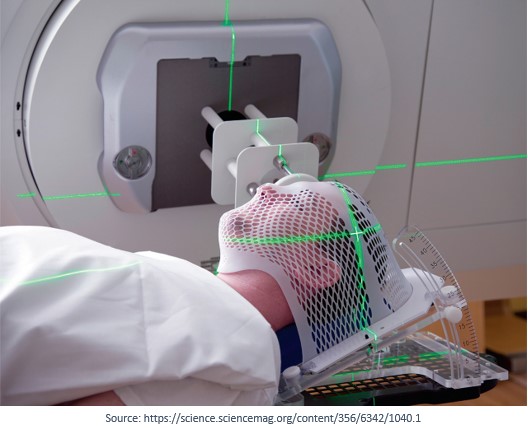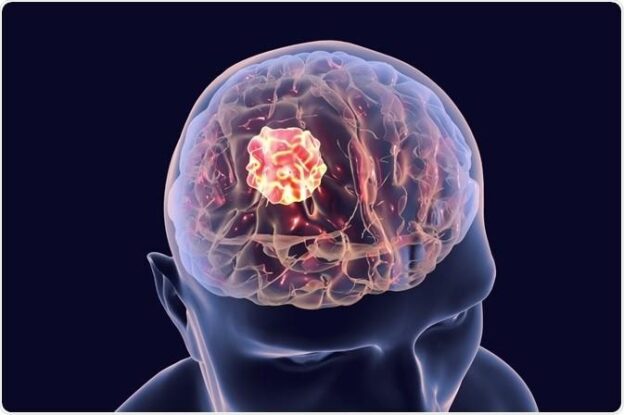Stereotactic Radiosurgery: the best knife-less treatment for Brain Tumors
Stereotactic radiotherapy is a technique for precisely targeting radiotherapy at a tumor. This kind of treatment is not accessible at all hospitals, as it requires specialized equipment and skills.
However, it is available in some of the best neurology hospitals in Guntur, which have skilled neurosurgeons.
You might hear the term stereotactic radiosurgery, but it isn’t a type of brain surgery. It involves administering a very high dose of stereotactic radiotherapy to a small area, often in a single treatment.
Now, let’s overview stereotactic radiosurgery for treating various tumors.
What is Stereotactic Radiosurgery?
It is a non-invasive radiation therapy where a focused beam of radiation kills tumors and treats defects in the brain while sparing healthy tissues. Stereotactic radiosurgery is not a surgery; it is just a non-invasive procedure similar to receiving a standard X-ray.
Who is Eligible for Stereotactic Radiosurgery?
A neurosurgeon and radiation oncologist decide if one can undergo the procedure.
The eligibility depends upon:
- Type of tumour
- Size of the tumour
- Location of the tumour
Advantages of Stereotactic Radiosurgery
- No pain
- No bleeding
- No surgical cuts or wounds
- Minimal exposure to radiation
- Minimal harm to the surrounding healthy tissues
- Extremely accurate
- Effective in elderly patients
- Quick procedure
- Fewer side effects
How is Stereotactic Radiosurgery performed?
Step 1: A frameless thermoplastic mask is attached to the head to keep the head in place.
Step 2: CT and MRI scans are performed to determine the precise location of the tumor.
Step 3: Radiation doses are calculated per the tumor size and location.
Step 4: Treatment is delivered in calculated doses.
Why is Stereotactic Radiosurgery required?
Traditional methods are ineffective in treating deep-seated spine and brain tumours due to their inability to reach the tumour. Stereotactic Radiosurgery can access distant tumors and break them effectively. Besides tumors in the brain and spine, skilled specialists implement stereotactic radiosurgery to treat tumors in the Neck, lung and Liver.
How does Stereotactic Radiosurgery Differ from External Beam Radiotherapy?
Stereotactic radiosurgery differs from external beam radiation in several ways. First, and primarily, the equipment is considerably more complex and sophisticated in design and implementation.
Our technologies for accurately identifying the targets are very similar to those used by neurosurgeons when planning complicated surgery.
Only in this instance do we combine the technology with a high-spec irradiation delivery system, thereby preventing the need for a scalpel. As some of the best neurosurgeons in Andhra Pradesh administer radiation treatment with submillimeter accuracy, the risk of injuring surrounding healthy tissue is significantly lower.
So, in many instances, the treatment can be employed very safely with minimal risk of side effects, both in the short and long term. However, the treatment is complex by design, but the patient’s journey throughout the delivery of stereotactic radiosurgery is effortless.
Any Side-effects?
Stereotactic Radiosurgery can cause minimal side effects, like:
- Headache
- Dizziness
- Fatigue
- Hair loss
- Itchy skin
How Long is the Procedure?
Experts conveniently execute the treatment in one half- to an hour-long session, or occasionally, your treatment may extend over five separate visits over one calendar week.
How Long is the Hospital Stay?
Treatment is painless without injections or cutting and can be given in an ambulatory setting without hospitalization or anesthesia.
Why Choose Dr. Rao and Dr. Rao’s Hospital for Stereotactic Radiosurgery?
Choosing the right medical professional and facility is critical when it comes to advanced and precise treatments like stereotactic radiosurgery. Dr. Rao and Dr. Rao’s Hospital are premier choices for this cutting-edge procedure. Here’s why:
1. Expertise and Experience
Dr. Rao:
- Highly Qualified: Dr. Rao is a leading neurologist and neurosurgeon with extensive training in stereotactic radiosurgery.
- Proven Track Record: With years of experience, Dr. Rao has successfully treated numerous patients with various neurological conditions, utilizing stereotactic radiosurgery to deliver effective and minimally invasive treatment.
2. State-of-the-Art Technology
Dr. Rao’s Hospital:
- Advanced Equipment: The hospital has the latest stereotactic radiosurgery systems, ensuring precise targeting of tumors and other abnormalities with minimal impact on surrounding healthy tissue.
- Innovative Techniques: Dr. Rao employs the most advanced and proven techniques, ensuring that patients receive the best possible care.
3. Comprehensive and Personalized Care
Patient-Centered Approach:
- Tailored Treatment Plans: Dr. Rao develops customized treatment plans based on each patient’s unique condition, medical history, and overall health.
- Multidisciplinary Team: The hospital boasts a team of specialists who work collaboratively to provide holistic care, addressing all aspects of the patient’s health and well-being.
4. Minimally Invasive with Maximum Precision
Benefits of Stereotactic Radiosurgery:
- Non-Surgical Option: This procedure offers a non-invasive alternative to traditional surgery, reducing risks and recovery time.
- High Precision: The technology allows for highly accurate targeting, which is crucial for treating small or difficult-to-reach brain lesions.
5. Proven Success in Treating Various Conditions
Wide Range of Applications:
- Brain Tumors: Effective in treating both benign and malignant brain tumors.
- Arteriovenous Malformations (AVMs): Used to treat abnormal tangles of blood vessels in the brain.
- Functional Disorders: Helpful in managing conditions such as trigeminal neuralgia and tremors.
6. Outstanding Patient Support and Aftercare
Comprehensive Support System:
- Pre-Treatment Counseling: Patients receive detailed information and support to prepare for the procedure.
- Post-Treatment Follow-Up: Regular monitoring and follow-up care ensure that any issues are promptly addressed and that patients recover best.
7. Accessibility and Convenience
Location and Accessibility:
- Strategic Location: Dr. Rao’s Hospital is conveniently located in Guntur, making it easily accessible for patients from the region and beyond.
- Efficient Service: The hospital is known for its streamlined processes, ensuring minimal wait times and efficient handling of appointments and procedures.
8. Positive Patient Outcomes
Patient Testimonials:
- High Satisfaction Rates: Many patients have reported significant improvements and positive outcomes following their treatments with Dr. Rao.
- Trust and Reliability: Dr. Rao’s commitment to excellence has earned the trust of his patients and the community.
In Summary
Choosing Dr. Rao and Dr. Rao’s Hospital for stereotactic radiosurgery means opting for unparalleled expertise, cutting-edge technology, personalized care, and a proven track record of success. If you or a loved one need this advanced treatment, you can trust Dr. Rao to provide the highest standard of care.
Contact Information:
- Phone: 9010056444, 9010057444
- Email: info@drraoshospitals.com
- Address: Old Bank St, GV Thota, besides AK Biryani Point, Guntur, Andhra Pradesh 522001
- Website: Dr. Rao’s Hospital
Take the first step towards better neurological health with Dr. Rao and Dr. Rao’s Hospital. Your well-being is our top priority.



